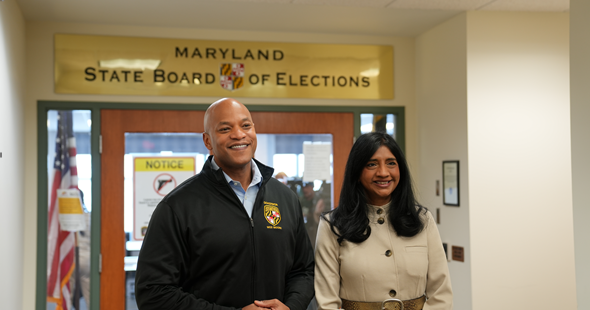Analysis: GOP Foes Seek Cracks In Perry's Record
TAMPA, Fla. (AP) -- Rick Perry's bid for the Republican presidential nomination will rise or fall on his 10-year record as Texas governor.
In Monday's crackling GOP debate, his rivals attacked that record as never before, led by a newly energized Mitt Romney and hard-charging Michele Bachmann.
Perry, holding his own but looking besieged at times, defended himself vigorously on most fronts. He acknowledged mishandling a schoolgirl vaccination program, however, and asked for understanding about Texas' need to work with illegal immigrants who seek citizenship and college educations.
As President Barack Obama might say: Welcome to the role of an incumbent with a complex record to defend from critics on all sides.
The spirited exchanges showed that the top Republican candidates differ not merely in style but on key issues such as immigration, health policy and Social Security. For now, at least, Perry is the front-runner the others are hoping to catch.
Romney, the former one-term Massachusetts governor running second in recent GOP polls, tried to blunt Perry's strongest point -- his Texas jobs record -- while exploiting what might be Perry's most troublesome issue, Social Security.
The deeply conservative Tampa audience seemed to shift to and from Perry's side during the two-hour forum, sponsored by CNN and the Tea Party Express.
On Social Security, Romney said, it wasn't so bad that Perry has called the program "a Ponzi scheme." The bigger problem, he said, is Perry's writings that suggest Social Security is unconstitutional.
"Does Gov. Perry continue to believe that Social Security should not be a federal program, that it's unconstitutional and it should be returned to the states?" Romney said.
The federal government made mistakes when Social Security was created decades ago, Perry said. However, he said, "obviously we're not going to take that program away" now that retirees have counted on it for 70 years.
Each man accused the other of trying to frighten older Americans. Perry noted that Social Security's long-term finances face problems, and asked, "Are there ways to move the states into Social Security for state employees or for retirees?"
As for Perry's boast that Texas added more than a million jobs during his time in office, Romney suggested the governor was mostly lucky.
"If you're dealt four aces, that doesn't make you necessarily a great poker player," Romney said. He actually named five: Texas's "zero income tax, low regulation, right-to-work state (status), oil in the ground and a Republican legislature."
Perry essentially laughed off the suggestion that it's easy to create a million jobs even with those advantages. He cited his efforts to reduce litigation, regulation and other perceived impediments to job creation that other states endure.
The debate turned more emotional, and more problematic for Perry, on illegal immigration and child vaccinations.
Perry again said he should have consulted the state legislature before ordering all Texas pre-teen girls to be vaccinated against a virus that can cause cervical cancer, unless their parents refused. "I am always going to err on the side of life," he said.
Bachmann, a tea party favorite who has fallen back in recent polls, swung in forcefully.
"Is it about life or was it about millions of dollars and potentially billions for a drug company" whose lobbyist was a former top Perry aide, she asked.
Perry said the drug maker, Merck, gave his campaign $5,000 of the roughly $30 million he raised.
"If you're saying that I can be bought for $5,000, I'm offended," Perry said.
The Minnesota congresswoman shot back, "Well, I'm offended for all the little girls and the parents that didn't have a choice."
It was perhaps the sharpest onstage exchange of the campaign so far. But Perry had more issues to defend. He brushed off Rep. Ron Paul's claim that he had raised taxes on Texas.
Illegal immigration was a tougher discussion. Perry said it was not feasible to build a fence the entire length of the Texas-Mexico border. And he defended his decision to grant in-state college tuition to illegal immigrants seeking U.S. citizenship.
His approach to immigration is similar to that of his predecessor, President George W. Bush. But like Bush, he found an unreceptive audience among conservative voters.
"Of course we build a fence, and of course we do not give in-state tuition credits to people who come here illegally," Romney said. "That only attracts people to come here and take advantage of America's great beneficence."
Former Utah Gov. Jon Huntsman agreed.
Perry asked for understanding. Mexico "has a clear and a long relationship with this state," he said of Texas. Illegal immigrants who go to college can become productive residents instead of staying "on the government dole" for the rest of their lives, he said.
"It's working well in the state of Texas," Perry said.
Over the next few weeks and months, his rivals seem determined to show that what works well in Texas might not work for the nation as a whole.
(© Copyright 2011 The Associated Press. All Rights Reserved. This material may not be published, broadcast, rewritten or redistributed.)







